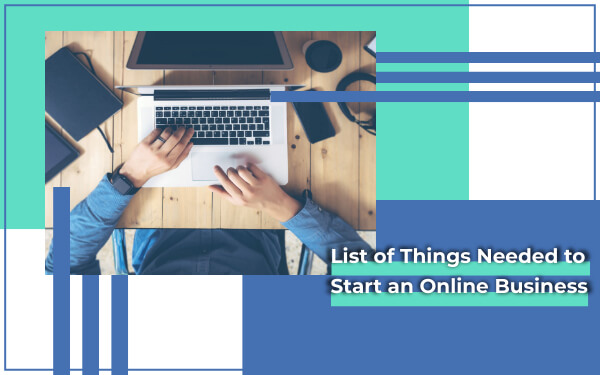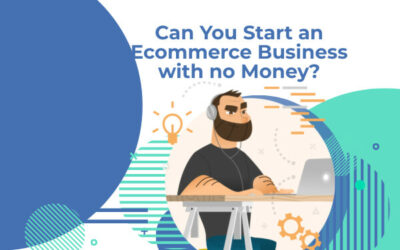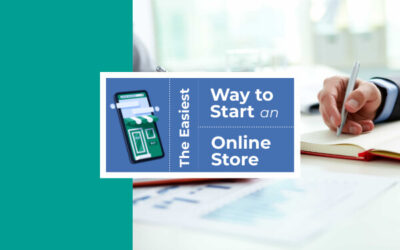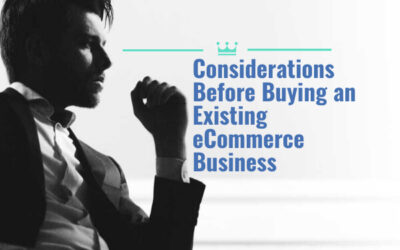List of Things Needed to Start an Online Business: The Ultimate Checklist!
Ready to ditch the 9-to-5 grind and become your own boss?
Well, hold onto your mouse because starting an online business isn’t as easy as just setting up a Shopify account and waiting for the money to roll in.
But don’t worry – we’ve got you covered.
In this post, we’ll walk you through all the essential items you need to launch your online empire and make your eCommerce dreams a reality.
So grab a coffee (or water, depending on how you feel about entrepreneurship), and let’s get started!
1. Get a Domain That’s Out of this World
Choosing a domain name that’s memorable, easy to spell, and relevant to your business is vital. A good domain name is like a good haircut – it can make or break your online store.
Here are a few tips for finding the perfect domain:
Make it memorable: A domain name that is easy to remember will help customers find your store more easily. Avoid using numbers or hyphens, as these can be difficult to remember and spell.
Keep it short and sweet: A shorter domain name is easier to remember and type. Plus, it will look better on business cards and promotional materials.
Make it relevant: Choose a domain name that reflects your brand and the products or services you offer. This will help customers understand what you’re all about and make it easier for them to find you online.
Check availability: Before you fall in love with a domain name, make sure it’s available. You can check availability by using a domain name search tool at any domain registrar.
Choose the right extension: There are many different extensions to choose from, including .com, .net, and .org. The most popular and widely recognized is .com, so it’s a good choice for most businesses.
However, if you’re targeting a specific country or industry, you may want to consider a country-specific extension (e.g., .co.uk for the United Kingdom) or an industry-specific extension (e.g., .photography for photographers).
With these tips in mind, you should be well on your way to finding the perfect domain name for your online business.
So go out there and find a domain that’s out of this world!
2. Find a Host That Won’t Crash and Burn
Hosting providers for your online store must have good uptime, reliable customer service, and a plan that meets your needs.
A hosting provider is like a reliable friend – it will keep your website up and running when you need it most.
Here are a few tips for finding the right hosting provider:
Look for good uptime: Uptime is the amount of time your website is available online. Look for a hosting provider with a track record of high uptime (at least 99.9% is a good benchmark).
No one wants to visit a website that is constantly down, so choose a host that won’t leave you hanging.
Consider customer service: Customer service is important, especially when you’re running an online business. Look for a hosting provider with a reputation for good customer service and a team that is available to help you when you need it.
Find a plan that fits your needs: There are many different hosting plans to choose from, ranging from shared hosting (which is cheaper but has less resources) to dedicated hosting (which is more expensive but provides more resources).
Consider your business needs and budget when choosing a hosting plan.
Bonus tip: If you’re not going with an all-in-one hosted eCommerce platform like Shopify, we recommend Cloudways as a hosting provider.
They offer excellent uptime, reliable customer service, and a variety of hosting plans to choose from.
With these tips in mind, you should be able to find a hosting provider that won’t crash and burn.
3. Pick an eCommerce Platform That Fits Like a Glove
When it comes to choosing an eCommerce platform for your online store, it’s important to find one that fits your business needs and is easy to use.
An eCommerce platform is like a good pair of shoes – it needs to fit just right.
Here are a few tips for finding the right eCommerce platform:
Consider your business needs: Different eCommerce platforms offer different features and capabilities, so choosing one that fits your business needs is important.
Consider factors like the number of products you’ll be selling, the payment methods you’ll accept, and the level of customization you need.
Look for user-friendliness: You don’t want to spend all your time struggling to navigate an eCommerce platform. Look for one that is easy to use and has a user-friendly interface.
Consider integration options: It’s likely that you’ll need to integrate your eCommerce platform with other tools and services, like email marketing, accounting software, and shipping providers.
Make sure the eCommerce platform you choose has good integration options.
Popular options
Some popular eCommerce platforms to consider:
- Shopify
- WooCommerce
- and Magento
Each has its own strengths and weaknesses, so it’s important to do your research and choose the one that’s right for you.
With these tips in mind, you should be able to find an eCommerce platform that fits like a glove.
4. Set Up Payment Options That Won’t Leave Your Customers Hanging
A reliable, secure, and easy-to-use payment gateway is essential. A payment gateway is like a good bartender – it will keep the transactions flowing smoothly.
Here are a few tips for finding the right payment gateway:
Consider your business needs: Consider factors like the types of payments you’ll accept (e.g., credit card, PayPal, Apple Pay), the countries you’ll sell in, and the fees you’re willing to pay.
Look for security: A secure payment gateway is crucial for protecting your customers’ sensitive information and keeping your business safe from fraud.
Look for a payment gateway that uses industry-standard security measures, like SSL encryption and PCI compliance.
Consider user experience: You want your customers to have a smooth and hassle-free checkout experience. Look for a payment gateway that is easy to use and integrates seamlessly with your eCommerce platform.
Popular options
Some popular payment gateways to consider include:
- PayPal
- Stripe
- and Square
With these tips in mind, you should be able to set up payment options that won’t leave your customers hanging.
Cheers to smooth transactions!
5. Open a Business Bank Account That Won’t Break the Bank
Low fees, good customer service, and convenient online banking options are features to look for when opening a bank account.
A business bank account is like a good relationship – it should work for you, not against you.
Here are a few tips for finding the right business bank account:
Consider fees: Look for a bank that offers low fees for things like account maintenance, debit card usage, and ATM usage.
No one wants to pay high fees for basic banking services.
Consider customer service: You’ll likely have questions or issues as you run your online business, so it’s important to choose a bank with good customer service.
Look for a bank with a reputation for helpful and responsive staff.
Consider online banking options: As an online business owner, you’ll likely do a lot of your banking online. Look for a bank with a user-friendly online banking platform and mobile app.
Shop around: Don’t be afraid to shop around and compare different banks to find the one that’s right for you. It’s worth taking the time to find a bank that meets your business needs.
With these tips in mind, you should be able to open a business bank account that won’t break the bank.
6. Write a Business Plan That’s Solid as a Rock
You must have a solid business plan in place when starting a business. A business plan is like a roadmap – it will help you get where you want to go.
Here are a few tips for writing a business plan for your online store:
Define your goals: What do you hope to achieve with your online business? Be specific and include both short-term and long-term goals.
Identify your target market: Who are you selling to?
Be as specific as possible about the demographics and interests of your ideal customers.
Outline your marketing strategies: How will you reach your target market and promote your products or services?
Consider things like social media marketing, email marketing, and search engine optimization.
Describe your products or services: What are you selling, and how will you differentiate yourself from the competition?
Create a financial plan: How will you make money, and what are your projected expenses? Include a sales forecast and a budget.
Review and revise: A business plan is a living document, so be sure to review and revise it regularly to ensure it stays relevant and accurate.
With these tips in mind, you should be able to write a business plan that’s solid as a rock.
7. Marketing Tools That Will Take Your Online Store to the Next Level
Marketing is like dating – you need to put yourself out there and be persistent. And just like a good partner, the right marketing tools can help you take your online store to the next level.
Here are a few tips for choosing marketing tools for your online business:
Consider your target market: Different marketing tools are better suited for different target markets, so it’s important to choose tools that will reach your ideal customers.
For example, if your target market is younger, you may want to focus on social media marketing. If your target market is older, email marketing may be a better option.
Look for integrations: It’s likely that you’ll use multiple marketing tools as you build your online business, so it’s important to choose tools that integrate well with each other. This will save you time and hassle as you manage your marketing efforts.
Consider budget: Marketing can be expensive, so it’s important to consider your budget when choosing marketing tools.
Look for tools that offer a good value for the price.
Popular options
Some popular marketing tools to consider include:
- social media marketing (e.g., Facebook Ads, Instagram Ads)
- email marketing (e.g., GetResponse, Moosend)
- and search engine marketing (e.g., Google Ads, SEO tools)
With these tips in mind, you should be able to choose marketing tools that will take your online store to the next level.
8. Product Sourcing Options That Won’t Leave You High and Dry
It’s important to choose product sourcing options that are reliable and cost-effective.
Product sourcing is like a good water bottle – it should keep you hydrated (in this case, with products to sell).
Here are a few tips for choosing product-sourcing options for your online business:
Consider dropshipping: Dropshipping is a product sourcing method where you partner with a supplier who handles the inventory, fulfillment, and shipping of your products.
This can be a good option if you don’t want to handle these tasks yourself, but it’s important to find a reliable supplier.
Consider wholesale suppliers: Wholesale suppliers offer products at a discounted price in bulk quantities. This can be a good option if you have the space to store and manage inventory and if you’re willing to make a larger upfront investment.
Consider manufacturing your own products: If you have a unique product idea or want more control over the production process, you may want to consider manufacturing your own products.
This can be a more complex and time-consuming option, but it can also offer the most control and potential for profitability.
Shop around: Don’t be afraid to shop around and compare different product sourcing options to find the one that’s right for you. It’s worth taking the time to find a product-sourcing option that meets your business needs.
With these tips in mind, you should be able to find product-sourcing options that won’t leave you high and dry.
9. Customer Service Strategies That Will Keep Your Customers Coming Back for More
When it comes to running an online business, it’s important to have good customer service strategies in place to keep your customers happy and coming back for more.
Customer service is like a good restaurant – it’s all about the experience.
Here are a few tips for choosing customer service strategies for your online business:
Consider a customer service platform: A customer service platform like Zendesk or Freshdesk can help you manage customer inquiries, complaints, and feedback in one place.
It’s important to choose a platform that is easy to use and integrates well with your eCommerce platform.
Make sure you have a clear returns policy: A clear and fair returns policy is important for building trust with your customers. Make sure you have a returns policy in place and that it is easy for customers to understand.
Respond promptly: No one likes to be left waiting for a response, so make sure you have processes in place to respond to customer inquiries and complaints promptly.
Be friendly and helpful: Customers will appreciate a friendly and helpful customer service experience, so make sure you train your customer service team to be patient, understanding, and helpful.
With these tips in mind, you should be able to choose customer service strategies that will keep your customers coming back for more.
Time to Take Your Online Business to the Next Level
Congratulations on making it to the end of this comprehensive list of things you need to start an online business!
With:
- a domain name
- hosting provider
- eCommerce platform
- payment gateway
- business bank account
- business plan
- marketing tools
- product sourcing options
- and customer service strategies on hand
You’re well-equipped to take your online business to the next level.
So go forth and conquer the eCommerce world!
Whether you’re just starting out or looking to take your business to new heights, these items will help you build a successful and profitable online store. With a little hard work and a lot of enthusiasm, you can turn your online business dreams into a reality.
Related Articles
Can You Start an Ecommerce Business with no Money?
Can You Start an Ecommerce Business with no Money?Are you thinking about starting an ecommerce business but worried about the lack of financial resources? Don't fret! You can absolutely launch a successful ecommerce business without shelling out a single penny! Yes,...
The Easiest Way to Start an Online Store: A Simple Guide to Get Started
The Easiest Way to Start an Online Store: A Simple Guide to Get StartedStarting an online store can feel like trying to climb Mount Everest without any oxygen - it's tough, overwhelming, and can seem like an endless journey. But don't you worry, my e-commerce buddy,...
Buying an Existing eCommerce Business
Buying an Existing eCommerce BusinessAre you considering buying an existing eCommerce business? While this can be a great way to enter the world of online commerce, it's essential to understand the complexities of the process and the potential challenges and risks...

Wayne is an experienced ecommerce operations expert with over 15 years in the industry. He has a background in supply chain management and project management and has worked for multinational ecommerce companies. With a strong understanding of inventory management, shipping and logistics, and process optimization, Wayne is committed to helping businesses run more efficiently and effectively. He has a background in Six Sigma methodology and is always seeking new and innovative ways to streamline processes and improve results. When he’s not working on operations, you can find Wayne cooking up a storm in the kitchen, hiking in nature, or spending time with his family.




